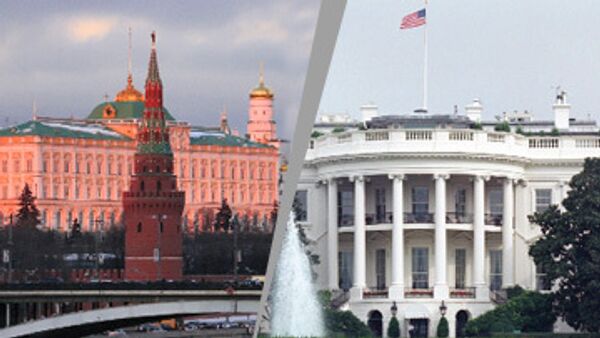MOSCOW, June 22 (RIA Novosti) - The third round of comprehensive Russia-U.S. talks on a new strategic arms reduction pact opened on Monday in Geneva, a Russian diplomat told RIA Novosti.
The first two rounds of Russia-U.S. arms reduction talks were held on May 19-20 in Moscow and on June 1-3 in Geneva. The U.S. team of negotiators is led by Assistant Secretary of State Rose Gottemoeller, while the Russian delegation is headed by Anatoly Antonov, director of the Foreign Ministry's Department of Security and Disarmament.
"The talks are being held behind closed doors at the U.S. mission [in Geneva]," the source said, adding that they will continue until June 24.
The Strategic Arms Reductions Treaty (START 1), which expires in December 2009, obliges Russia and the United States to reduce nuclear warheads to 6,000 and their delivery vehicles to 1,600 each. In 2002, a follow-up agreement on strategic offensive arms reduction was concluded in Moscow. The agreement, known as the Moscow Treaty, envisioned cuts to 1,700-2,200 warheads by December 2012.
Russian President Dmitry Medvedev and Barack Obama agreed during their London meeting in early April that the talks would commence virtually immediately.
According to a report published by the U.S. State Department in April, as of January 1 Russia had 3,909 nuclear warheads and 814 delivery vehicles, including ground-based intercontinental ballistic missiles (ICBM), submarine launched ballistic missiles (SLBM) and strategic bombers.
The same report said the United States had 5,576 warheads and 1,198 delivery vehicles.
Russia, which proposed a new arms reduction agreement with the U.S. in 2005, expects Washington to agree on a deal that would restrict not only the numbers of nuclear warheads, but also place limits on all existing kinds of delivery vehicles.
Russian Foreign Minister Sergei Lavrov said on June 20 he hopes the U.S. has a good understanding of Russia's position, voiced by President Medvedev, that any arms cuts should also involve a resolution on the controversial issue of a planned U.S. missile defense shield due to be deployed in Central Europe.


